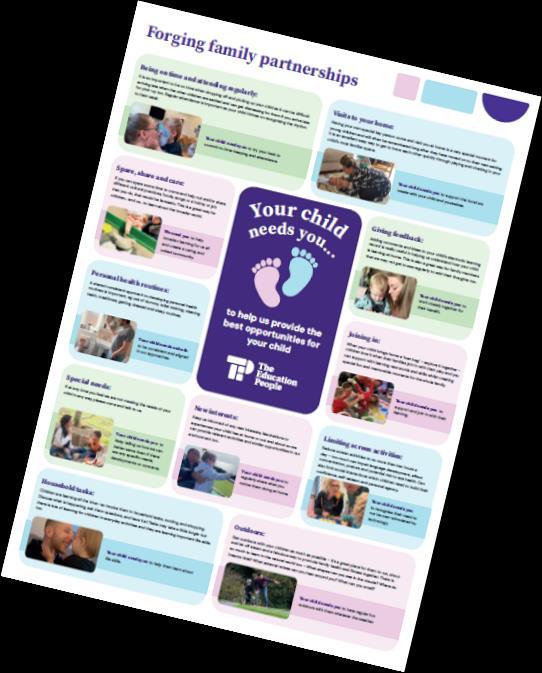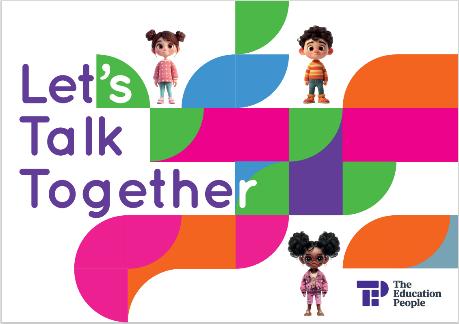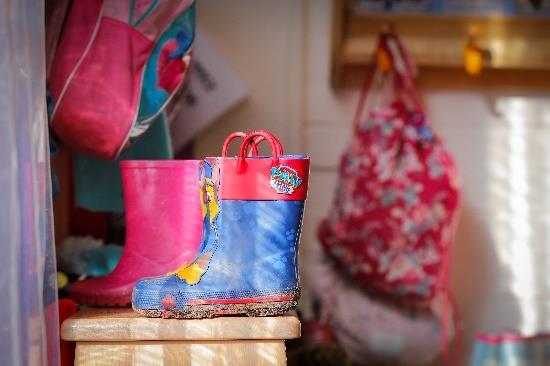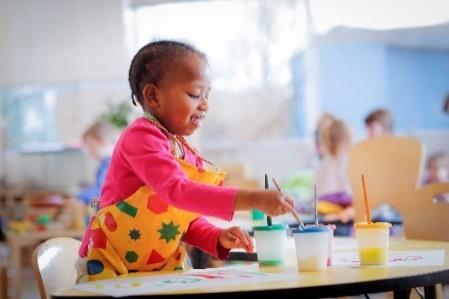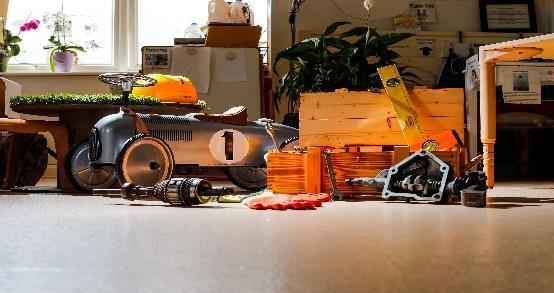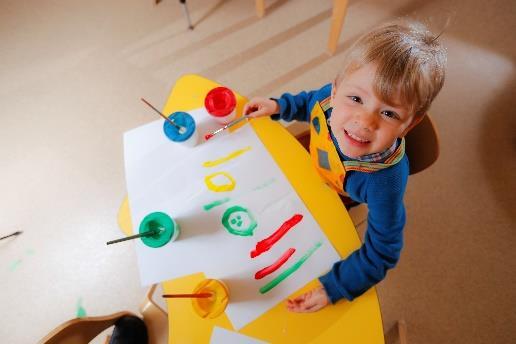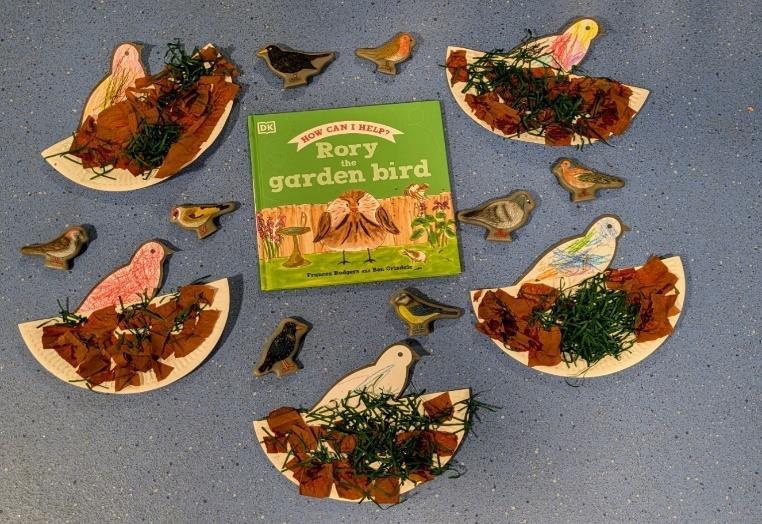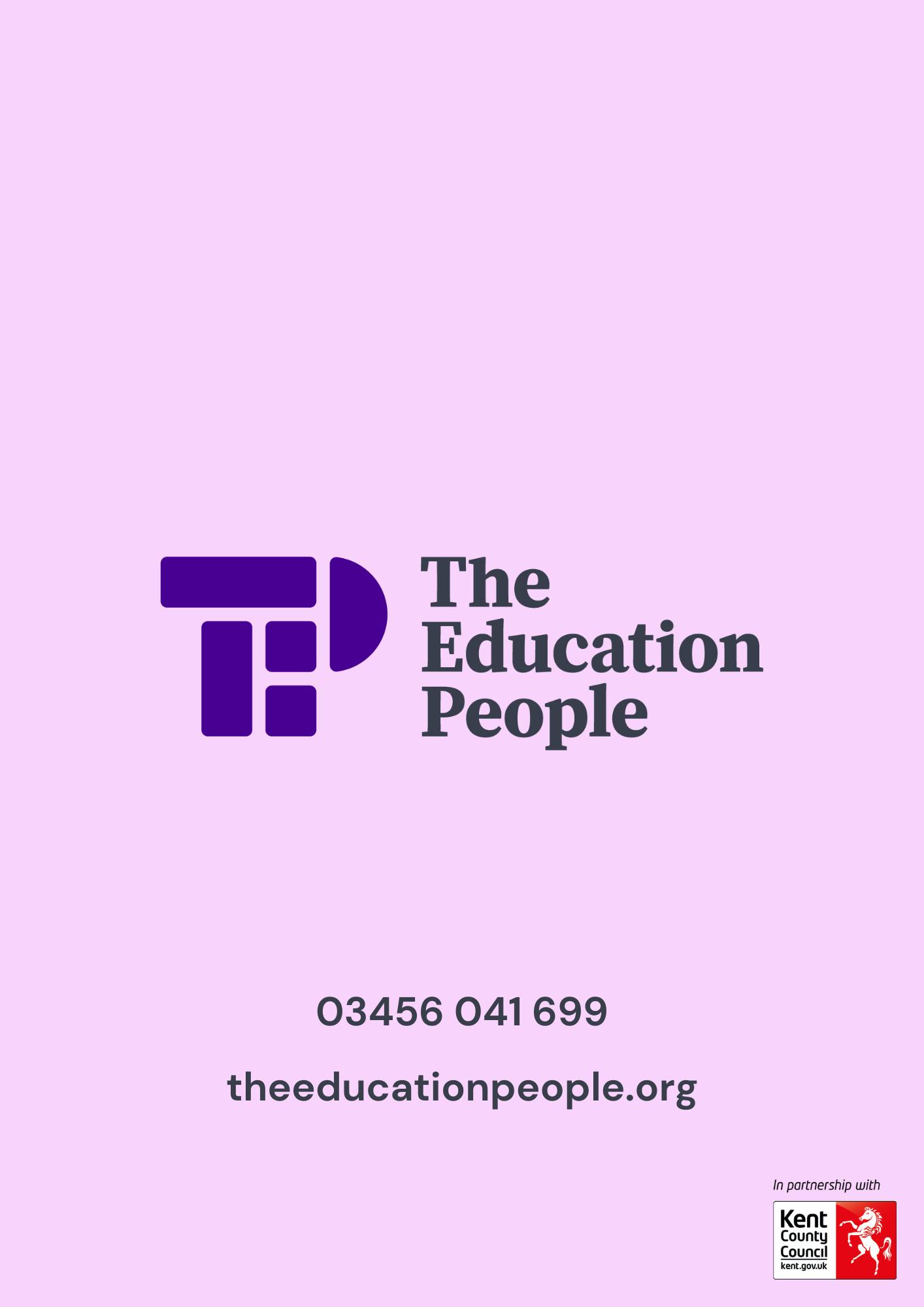Nationalnewsandupdates
Quick qualifications overview
The Department for Education - early years qualifications check list is online and it is constantly being updated as new course titles are added and others reviewed. This qualification list along with the early years foundation stage statutory framework are paramount in ensuring you continue to meet the ratio requirements.
Let’s look at the early years job roles and qualification expectations.
Managers
For any manager who is appointed they must hold an approved full and relevant level 3 qualification or above and anyone who has been appointed since 1 January 2024 must hold a suitable level 2 maths qualification too or must do so within two years of starting the position. Managers should also have at least two years’ experience of working in an early years setting or at least two years other suitable experience.
Deputies
They must be deemed suitable to be in charge (capable and qualified) in the manager’s absence. Footnote 23 in the statutory framework states ‘A deputy does not have to have any specific qualification.’
Practitioners
To be counted in ratio all practitioners must hold an approved full and relevant qualification. If their qualification was achieved (level 2 and 3) since 30 June 2016 they must also hold a full paediatric first aid to count in ratio. Also, those practitioners with an Early Years Educator qualification must also have achieved a suitable level 2 qualification in English.
When checking qualifications always read the comment to the far right as this may set out any additional requirements needed to count in ratio.
For practitioners working with babies (under twos) at least one member of staff must be suitably experienced in working with children under two and at least half of all staff must have received training that specifically addresses the care of babies.
You may want to consider highlighting the practitioners who are post June 2016 on your single central record so you know they must hold additional qualifications to count towards the ratio.
Childminding and Childminding Assistants
Childminders and childminding assistants are required to have relevant training, so they have appropriate skills, knowledge, and a clear understanding of their role and responsibilities to provide good quality early years provision
Oral health in early years settings
The Early Years Statutory Framework, January 2024, states in bullet point 3.51Providers must promote the good health, including the oral health, of the children they look after.
In June 2023 the Department for Education (DfE) published new guidance to help early years providers promote good oral health to young children in their settings. The guidance highlights the importance of good oral hygiene and the importance of brushing teeth effectively to help avoid tooth decay. Tooth decay happens when too many sugars from food and drink interact with the bacteria in tooth plaque.
The Office for Health Improvement and Disparities’ Oral Health Survey of fiveyear-old children in 2022 found that nearly a quarter of five-year-olds in England have tooth decay. Public Health England’s Oral Health Survey of three-year-old children found that in 2020:
• nearly a quarter of five-year-olds in England have tooth decay, affecting three to four teeth on average
• children from more deprived backgrounds are more likely to have tooth decay
• 11% of three-year-olds in England have visible tooth decay, affecting three teeth on average.
Food and Drink Policy
What does your food and drink policy say about drinks you are providing children in your setting?
Are you regularly reviewing and sharing the policy as a team and with your families?
If your policy states, that you only provide milk and water in the setting, do you support families bringing juice in their children’s drinks bottles?
As an early years sector what can we do to help prevent tooth decay?
• From six months old babies can be offered drinks in open top cups.
• From twelve months old, children should be encouraged to have all drinks in open top cups.
• Drinking juice out of drinks bottles can increase the risk of tooth decay as the sweetened liquid coats the back of the front teeth that can cause them to rot. This decay can then spread to other teeth.
• Provide children with milk and water; these are the only drinks that do not contain any free sugars which can lead to tooth decay.
• Monitor what children drink during snack time; if you provide milk and water, are you ensuring children drink this, rather than drinking juice from their own drink bottles?
• Do you monitor how much children are drinking throughout the day and what they are drinking? We tend to encourage and monitor the amount children are drinking during the summer months to ensure they do not get dehydrated in the heat, but does this happen at any other times throughout the year?
• Does your setting share information with families about the importance of reducing the risks of tooth decay and limiting the amount of sugar the teeth are absorbing.
• Think about the examples you as professionals are setting; do you have juice or fizzy drinks in your drink’s bottles? Adults in the setting can provide a good example to children.
Further reading
Oral health - Help for early years providers - GOV.UK (education.gov.uk)
Gov.uk Oral health survey of 5 year old children 2022
Gov.uk Oral health survey of 3 year old children 2020
Businesses for sale
Have you ever considered expanding your early years business by purchasing another?
With the introduction by Ofsted of registering second premises, the process for providers has become far simpler.
There are various companies, local estate agents and auction houses which advertise early years provisions for sale. For instance: Christie & Co: www.christie.com
Owen Froebel: www.owenfroebel.co.uk
Auction House: www.auctionhouse.co.uk/kent
Whilst we cannot list all or endorse any one agent, you can usually sign up to their sites stating specific areas of interest, and then be notified when businesses become available.
Committee/charity news
The Charity Commission has recently updated the following publication: Internal financial controls for charities: protect your charity from fraud and loss (CC8) - GOV.UK
Internal financial controls are essential checks and procedures which help trustees:
• meet their legal duties to protect their charity’s funds and assets, such as from fraud
• administer their charity’s finances and assets in a way which identifies and manages risk
• ensure the quality of financial reporting by keeping adequate accounting records and preparing timely and relevant financial information.
Whilst doing this the Commission has also refreshed their guidance on how charities can protect themselves from fraud and cyber-crime
Protect your charity from fraud - GOV.UK which covers a trustee’s duty to manage charity resources responsibly by:
• identifying the risks of fraud at your charity
• taking actions to protect your charity
• checking that actions are working.
Protect your charity from cybercrime - GOV.UK which covers:
• the most common types of cyber-attack
• things you can do to protect your charity from cyber-crime.
The Charities (Annual Return) Regulations 2024
The Charities (Annual Return) Regulations 2024 were made on 20 December 2024 and came into force on 1 January 2025 and will apply to all registered charities required to file with the Charity Commission with an accounting year ending on 1 January 2025 or after.
These regulations have been updated to remove questions in the ‘Locations’ and ‘Structure’ sections of the form, in response to the Annual Return Public Consultation analysis.
The updated regulations include all questions which need to be answered in Part A of the return, which remains unchanged from 2023. Charities will be required to complete these in their 2025 Annual Return.
Questions in the Annual Return
The questions you will be asked are dependent on your income, the type of charity and what the charity does.
Check the questions in the annual return before you start.
2023 and 2024 annual returns
View the Charity Annual Return 2023 and 2024 question guide
Kentnewsandupdates
Kent Safeguarding Children Multi-Agency Partnership (KSCMP) Conference
KSCMP will also be hosting their first Partnership Conference on Wednesday 2 April 2025 at the Mercure Hotel, Great Danes. It will be a face-to-face all-day event with opportunity for networking, information sessions and a “Talk to the Top” session Free tickets are now available via Eventbrite, ticket numbers are limited.
Welfare requirement notifications
In 2024 several nurseries across Kent received Welfare Requirement Notifications (WRN). This is when a complaint (parent or professional) or a setting (nominated person) reports a breach of the statutory requirements to Ofsted. Following this, Ofsted may call or visit the setting to enquire further about the information given. They will consider the facts and then they may give the setting a set of actions to improve practice to ensure they meet the Department for Education Statutory Requirements Framework 2024 in a timely and focused manner.
In 2024 the most common action set by Ofsted was around risk assessment, usually relating to the environment and or security of the premises Consider how robust are your risk assessments and would they hold up to being scrutinised if an incident occurred?
Policies and procedures were also put under the spotlight with Ofsted holding settings to account for not following their own policies and procedures or for them not being robust enough. Particularly safeguarding policies and procedures, with either poor or slow reporting of concerns to the relevant agency.
Consider are your policies clear and are your procedures easy to follow for all members of staff if they had a concern, especially about a member of staff?
Lastly, effective staff deployment was also noted as an area for improvement Ofsted highlighted how ineffective deployment resulted in an incident happening and that settings should either revisit their procedures and / or their risk assessment to evaluate where staff should be deployed and ensure this is effectively communicated to all staff. Consider, are there certain transitions throughout the day that compromise the quality of supervision of children and if so, are there any extra measures in place to keep them safe?
Below is a chart of trends in Kent. Why not have a look? If you were asked about these, do you think your current processes are robust?
Kent trends:
• Safeguarding policy and procedure
• Knowledge of LADO
• Reasons to contact Ofsted
• Risk assessment for collection of children
• Emergency evacuation
• Safer sleeping
• Suitable people
• Induction
• Named deputy
• Risk assessment / accident reporting / health and Safety
• Knowledge of SEND and how to support individual needs
• Staff deployment
• Children in sight and / or sound
• Key person approach
• Record keeping
Forging family partnerships
Strengthening partnerships with families is often a recommendation given by Ofsted during inspections, along with the need to support family involvement in children’s learning and the home learning environment. The Early Years and Childcare Service has developed an exciting package of support for all early years practitioners working in group and childminding settings, teachers and other professionals working with families. It aims to support fostering a holistic, inclusive and productive approach to engaging and working with families.
You should have recently received a package through the post, containing the following resources:
- A guide to forging family partnerships
- A fundamental family footsteps poster
- A forging family partnerships poster
The first poster is designed to support practitioners with ‘footsteps’ to fostering fruitful relationships with families. The second poster is to display or share with families. The booklet, ‘A Guide to Forging Family Partnerships,’ accompanies both posters and is a handy guide for all practitioners, to help build and strengthen your existing strategies to engage with families and support the home learning environment.
In addition, you should have received direct mails from the Early Years and Childcare Service, whereby Jackie King, Early Years Improvement Adviser, explains more about the package, shares a link to a short webinar and provides details of five interactive faceface workshops. These workshops are informal opportunities to discuss current practice, any barriers and share strategies to build great relationships with families. Along with refreshments, you will have an opportunity to develop and build on your own plan to take back to your setting.
The interactive workshops are free to attend, and all take place from 9.30am –12.30pm. Please book now on the links below. We would love to see you at one of them.
11 February - Eastgate, Gravesend, DA11 8AD
12 February - St Augustine’s, Thanet, CT8 8NL
13 February - Holiday Inn, Wrotham, TN15 7RS
26 February - Riverside, Whitstable, CT5 3JQ
27 February - Singleton Environment Centre, Ashford, TN23 5LW
Let’s Talk Together
A new free resource called Let’s Talk Together is now available, aimed at supporting families in creating communication friendly homes The booklet is available to download in the following languages: English, Punjabi, Dari, Polish, Romanian and Nepalese.
We know as early years practitioners how important communication and language is for children’s future development and success. This booklet aims to support families in understanding the role they play in helping young children to develop the foundations of language.
Offering lots of practical strategies and top tips, including using low or no cost items to create story sacks for example, it really offers a solid foundation for supporting communication within the home.
The booklet was designed and created by a group of Kent practitioners who had achieved Communication Friendly Status as part of the Government’s
Professional Development Programme. They wanted a guide which could be used as a whole document to share as part of admissions, for example, or pull-out sections such as nursery rhymes which could be shared for a specific focus.
To download the booklet and print out the free promotional poster, please visit The Education People website. Continuous professional development survey
Earlier in January you will have received a communication from us on behalf of Kent County Council (KCC) in relation to a Continuous Professional Development (CPD) survey.
One of the key focus areas of the implementation of changes to the model of support that will be made available to early years providers, is developing a refreshed CPD offer for the sector workforce, to improve and strengthen what people currently value most about the current offer.
The survey should take 10 to 15 minutes to complete, and your time in contributing your views would be really appreciated.
CPD Survey
The survey will close on 28 February 2025.
If there any questions or if there are any issues with the survey, please contact inclusion@kent.gov.uk
Focusonoutofschoolproviders
Happy 2025 to all out of school providers in Kent. We would also like to welcome newly registered providers supporting the Government’s Wraparound Childcare Programme to enable parents and carers of primary school-aged children to access term-time childcare should they need it. We look forward to offering support to all out of school providers in 2025, those who have been caring for children before and after school for many years, as well as newly registered providers.


Newly registered providers are regularly supported through an out of school ‘Delivery Plan’, (as commissioned by Kent County Council and delivered by The Education People’s Early Years and Childcare Service) until their first Ofsted inspection. Providers who receive a ‘met’ judgement following their inspection are then offered an Annual/Professional Conversation going forward. The aim of these ‘conversations’ is to reduce the risk of falling below a ‘met’ judgement. We encourage you to discuss any concerns you have about how well you think you are meeting the Safeguarding and Welfare Requirements We also celebrate your strengths with you and discuss any areas you feel need improvement. If you have any questions about any of our visits, please email the EY Improvement mailbox EYImprovement@theedcationpeople.org
Ofsted inspections published in 2024 have often contained comments about the food available for children in out of school provision. For example, ‘healthy and well balanced’ ‘nutritional’ and ‘supporting children’s independence.’ In 2025 we will provide a quarterly ‘Ofsted overview’ sharing celebrations and strengths and any trend areas for improving as cited in the previous quarters’ reports.
As the days get longer, and evenings become lighter, the weather can be variable. At times it may feel like an effort to go outside.
The Early Years Foundation Stage states, ‘children must have daily access to outdoor activities.’ With that in mind consider sharing with parents and carers your ethos of play in all weathers and remind them ‘there is no such thing as inappropriate weather, just inappropriate clothing’. You may want to give gentle reminders to ensure children have appropriate clothing for rain, cold and play. It can also help to have a spare supply of wellies and raincoats available (maybe donated by families whose children have grown out of them) to ensure that no one is excluded. It might also be a good time to remind parents and carers about your contingency procedure for closing your setting should there be severe weather conditions.
We have been thinking about activities we enjoyed as children at this time of year.
• ‘Hide and seek’ great fun outside in the dark with torches and high viz jackets.
• Other games outside such as:
o ‘What’s the time Mr Wolf’ o ‘Stuck in the mud’
o ‘Hopscotch’
o ‘In the pond out of the pond’
o making perfume and potions by adding water to leaves and petals and mixing with a stick.
• Playing board games together, such as memory, snakes and ladders, ludo and drafts as well as more modern popular board games
• Projects over days or weeks, such as papier mâché, clay or sewing.
• Reading a book, maybe a children’s classic, a chapter a day – older children still love to be read to.
We are sure you have many more, why not email your favourites to us, particularly new and unique ideas? Subject line – ‘OOS ideas’ to EYImprovement@theedcationpeople.org and we can add them to the next bulletin. We hope to hear from you!
Focusonchildminders
Childminder start-up grant – reminder to newly registered childminders.
New childminders must apply for the grant within two months of confirmation of their childminder registration date. If you are newly registered don’t miss out!
You will get different amounts of money depending on if you register with Ofsted or a Childminder Agency The amounts reflect the different costs of registering and do not need to be paid back.
For more information and to apply see the Government website.
Time is running out; the grant comes to an end on the 31 March 2025.
Early years entitlement funding information
Kent County Council’s KELSI website has a wealth of information, guidance and templates to support childminders delivering early years funding. Everything you need to know, from creating a privacy policy and submitting a claim, to payment dates, is here. Explore the following pages to see just what is included:
The Working Parents Entitlement
Free Early Education for 3 to 4 Year Olds
Free for Two (FF2) Funding – Disadvantaged Two Year Olds
If you require further support regarding the funding process, please contact your allocated Childminding Adviser or email the team at childminding@theeducationpeople.org If you have a specific question regarding your funding claims, please contact Management Information at miearlyyears@kent.gov.uk
Facebook
The Education People Kent Childminders Facebook group is a closed group specifically for Kent childminders. It too includes helpful information and gives the opportunity to ask questions to fellow childminders.
Goodpractice
Supporting children’s creativity
Supporting children's creativity in your settings involves providing an environment that fosters exploration, imagination and expression.
Here are some practical ideas for you, as early years practitioners, that you may not have considered, to support children's creativity:
Create a Stimulating Environment
• Art Stations: set up accessible art areas with materials like paints, crayons, chalks, clay and paper for free expression.
• Sensory Play: include sensory materials like sand, water, playdough and textured objects to stimulate imagination.
• Role-Play Areas: set up home corners and play areas with costumes, props and everyday items to encourage imaginative role-play.
Encourage Open-Ended Play
• Provide materials without specific instructions, such as building blocks,
loose parts (sticks, conkers, shells, stones, fabric) and recycled materials.
• Allow children to create and use items in ways that make sense to them, fostering critical thinking.
Offer Varied Experiences
• Music and Dance: introduce musical instruments, rhythm activities or movement sessions where children can create their own music or dances.
• Exploring Nature: take children outdoors to collect natural items or engage in imaginative play in natural spaces.
• Storytelling and Use of Puppets: encourage children to create or make up their own stories or perform with puppets and props.
Encourage Problem-Solving and Experimentation
• Pose challenges or questions (eg "What can we build with these materials?").
• Provide opportunities for trial and error without fear of failure. It is the process, not the outcome.
Foster Collaboration
• Encourage children to work together, where children can share ideas and create together (eg a group drawing or painting).
• Facilitate cooperative games that involve creative problem-solving.
Support Independence and Choice
• Allow children to choose activities and direct their own creative works.
• Avoid overly structured tasks, let children decide how to use the materials provided.
Celebrate Creativity
• Display children’s work prominently at their levels and discuss it with them.
• Offer positive reinforcement focusing on effort and ideas rather than the finished product.
Create with Children
• Join in creative activities as a collaborator rather than a director.
• Ask open-ended questions to stimulate thinking (eg “What happens if we try this?”).
By implementing these ideas, you can (further) nurture an environment that values and cultivates children's creativity, confidence, problem-solving skills and imaginative thinking.
Big Garden Bird Watch 2025
In the UK, the Big Garden Birdwatch is the largest garden wildlife survey, running since 1979. Each year, around 700,000 people take part, with the event taking place over the last weekend in January. All nature lovers are invited to observe, record, and report the birds in their gardens or local parks for one hour.
Children are natural born scientists, everything is new, and interesting. Children benefit from learning about the natural world around them. Many studies have shown spending time with nature is good for mental and physical wellbeing.
Little Ducklings Childcare in Sheppey have been celebrating Birdwatch week The children have been enjoying bird nest craft, using bird stones in play and their focus book has been “Rory the Garden Bird”. The children have kindly shared their creations with us.
Informationforfamilies
Ofsted poster and factsheet for parents
Ofsted has updated two parent-facing resources for use by childcare providers:
• A poster for parents on Ofsted's role in regulating childcare.
The poster explains that Ofsted registers and inspects childcare for children aged from birth to 17 years
Please note: the poster received several updates in November 2024, including an updated telephone number and clarification of Ofsted's role in childcare registration and regulation.
• A factsheet for parents
This factsheet includes information about how Ofsted regulates childcare, what information is available for parents and carers when choosing childcare and how to raise concerns about a childcare provider. The factsheet has been updated to clarify how Ofsted handles anonymous complaints. Updated 21 November 2024
Information for parents about Ofsted's role in regulating childcare
Ofsted poster for parents’ childcare 2024
The Lullaby Trust – Safer sleep for babies
Sudden Infant Death Syndrome (SIDS) is also known as cot death. No-one knows what causes SIDS, but research has shown that following safer sleep advice significantly reduces the chance of SIDS occurring.
The Lullaby Trust has developed a series of free online presentations for parents on how to reduce the risk of SIDS when caring for a baby.
Topics include:
• sleep position, sleep environment and bedding
• overheating, temperature and overwrapping
• co-sleeping
• breastfeeding
• smoking and e cigarettes.
Safer Sleep for babies’ presentations - The Lullaby Trust
Briefingandnetworkingsessions
Our regular Early Years & Childcare Briefing and Networking sessions provide a good opportunity to keep your setting and staff up to date and to network with colleagues from other settings.
Why not book a place on the next round of sessions and benefit from the opportunity to network and hear important updates? In line with provider feedback and to maximise ability to attend, these sessions will continue to be held virtually via Zoom, and you can access your place by clicking on the titles below.
EYC Briefing and Networking – North Tuesday 11 February 2025 4 – 6 pm
EYC Briefing and Networking – West Wednesday 12 February 2025 4 – 6 pm
EYC Briefing and Networking – East Wednesday 26 February 2025 4 – 6 pm
EYC Briefing and Networking – South Thursday 13 February 2025 4 – 6 pm
We are also running an additional evening Briefing and Networking Session specifically for eligible childminders and out of school settings who may find it difficult to attend the weekday afternoon sessions.
EYC Briefing and Networking –Childminders and Out of School Tuesday 25 February 2025 7.30 – 9.30 pm
Contactus
Alex Gamby Head of Early Years & Childcare
Threads of Success
Threads of Success Recruitment Hub
Alex.gamby@theeducationpeople.org
https://www.theeducationpeople.org/our-expertise/earlyyears-childcare/threads-of-success/
https://www.theeducationpeople.org/our-expertise/earlyyears-childcare/recruitment-hub/
Sufficiency and Sustainability sufficiencyandsustainability@theeducationpeople.org
Education for Sustainable Development esd@theeducationpeople.org
Improvement and Standards eycimprovementservices@theeducationpeople.org
Equality and Inclusion eyinclusion@theeducationpeople.org
Collaborations eycollaborations@theeducationpeople.org
Childminding childminding@theeducationpeople.org
Workforce Development earlyyearsworkforce.ask@theeducationpeople.org
Kent Children & Families Information Service kentcfis@theeducationpeople.org
KCC Management Information miearlyyears@kent.gov.uk
KELSI http://www.kelsi.org.uk
Schools Ebulletin http://www.kelsi.org.uk/working_in_education/news.aspx











